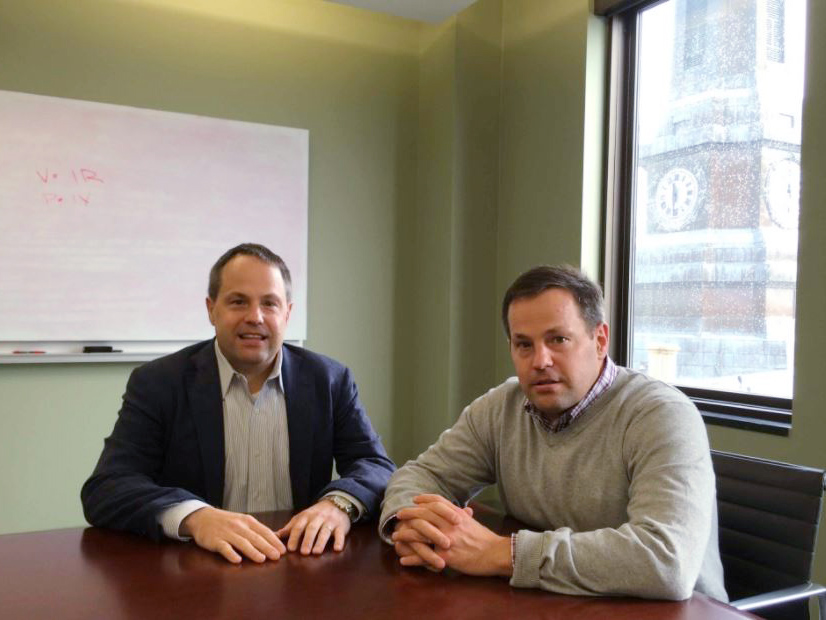Powhatan Energy Fund will file for Chapter 7 bankruptcy, a company representative said Thursday, effectively ending more than a decade of litigation and legal moves with FERC over a high-profile market manipulation case in PJM.
In an email to RTO Insider, Powhatan co-founder Kevin Gates said the Pennsylvania-based money management firm that once participated in PJM markets “does not have enough money to continue to litigate with the FERC over simple spread trades that took place almost 12 years ago” and decided to declare bankruptcy, unwinding the firm. The bankruptcy documents were not yet filed as of Thursday evening.
In 2015, FERC ordered Powhatan and one of its traders to to pay $34.5 million in penalties and disgorged profits. The commission accepted the Office of Enforcement’s findings that the company and trader Houlihan “Alan” Chen violated anti-manipulation rules by making riskless back-to-back up-to-congestion (UTC) trades to profit on line-loss rebates (IN15-3). (See FERC Orders Gates, Powhatan to Pay $34.5 Million; Next Stop, Federal Court?)
In July of that year, the commission filed suit in the U.S. District Court for the Eastern District of Virginia to request an order affirming FERC’s orders assessing civil penalties, leading to several years of motions, countermotions and orders. Powhatan chronicled the legal back-and-forth on its website.
“We’ve already paid our attorneys many millions of dollars and simply do not have another million dollars to continue to defend ourselves from FERC’s meritless assault,” Kevin Gates said in the email.
The Case
Chen, who conducted the trades, began trading UTCs in 2007, after leaving Merrill Lynch, where FERC said he studied UTCs as a tool for physical and financial transactions.
Initially, Chen’s trades were based on market fundamentals and models he developed using a “careful, low risk approach of what he called ‘directional bets,’” FERC said. Most bids were under 100 MW, and his profitability depended on favorable price spreads.
In October 2009, after discovering he was receiving line-loss rebates, Chen switched to a strategy designed to capture increased volumes of rebates, FERC said.
His strategy changed again after suffering a $176,000 loss on May 30, 2010, when one leg of a trade saw an unexpected price spike. Following the loss, Chen switched to a round-trip trading strategy between the same two points (A-to-B, B-to-A) that FERC said made the underlying trades effectively riskless.
FERC sought penalties only for what it called the “manipulation period,” from June 1 to August 3, 2010, when Chen stopped the trading after receiving a warning from PJM Market Monitor Joe Bowring.
FERC began investigating Chen and Powhatan, with Chen and the Gates brothers responding to FERC data requests and sitting for depositions while their lawyers sparred with FERC attorneys and provided affidavits from an economist and an attorney supporting their defense.
In October, FERC issued a consent agreement with Chen, with Chen agreeing to disgorge $600,000 to PJM.
Gates’ Response
In 2015, Kevin Gates told RTO Insider that he rejected FERC’s offer to enter settlement discussions after he, his brother and Chen had responded to data requests and sat for depositions while their lawyers continued to spar with the agency. In a Feb. 18 email, Gates said the company subsequently attended “like three court-mandated settlement discussions,” none of which were productive.
The company did propose a settlement with FERC last June, which the commission turned down.
“Even though FERC’s investigation began 4,201 days ago, we weren’t even able to complete discovery as they threw up every possible roadblock they could think of to drag this case out and bleed us of resources,” Gates said.
Gates said FERC “essentially has an unlimited budget” to litigate cases and is “happy to spend other people’s money to promote their own agenda.” He said FERC’s “modus operandi” is to use litigation and their power to “extract massive, headline-grabbing settlements” from individuals and companies that don’t want to engage in their defense in court.
“We suspect this will make the FERC happy,” Kevin Gates wrote. “They have never sought the pursuit of justice, but rather used the administrative process and the legal system as a cudgel with which to bully us. FERC is part of the reason that citizens are losing faith in our government and a demonstration that bureaucrats sometimes deserve their worst stereotypes.”



